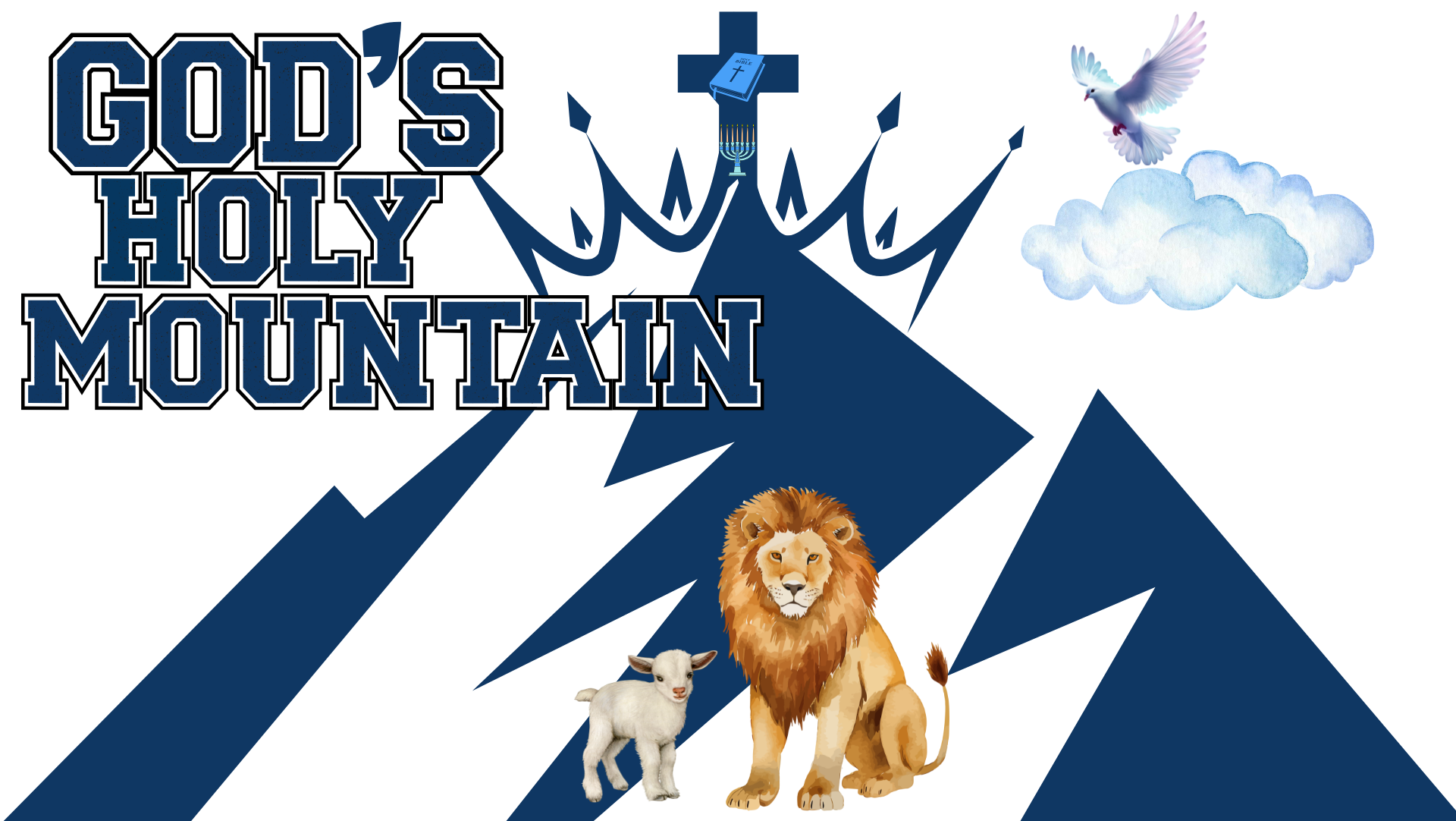Last updated on August 2, 2025
Understanding Zion and the Spiritual Jerusalem
Throughout the Bible, God’s holy mountain appears again and again as a profound prophetic symbol. But what exactly is this mountain? Are we looking at a literal piece of geography, or is the Bible pointing us to something far greater? While many associate it with the physical terrain of Jerusalem, there’s a deeper, spiritual revelation beneath the surface. Understanding this truth is crucial for interpreting many of the Bible’s prophecies correctly. In this post, we’ll explore the layered meanings of God’s holy mountain and why discerning the difference between the physical and the spiritual Jerusalem matters more than ever.
Literal vs. Spiritual: A Key Principle of Biblical Interpretation
Before diving into specific verses, we must establish a foundational principle: Scripture often speaks on more than one level. A word or passage can have a literal meaning, a spiritual meaning, or both. Therefore, we cannot afford to interpret the Bible only with natural eyes. Spiritual discernment is required to uncover the truths God has hidden in plain sight.
This principle is especially true when the Bible speaks about Jerusalem, Zion, and God’s holy mountain. While there is a literal city named Jerusalem, the Bible frequently uses that name to reveal a deeper spiritual reality—one that points to God’s eternal kingdom, His divine dwelling, and the gathering of His saints.
Jerusalem and Zion: Two Names, Two Dimensions
Let’s consider a powerful example of this principle in action. In 2 Samuel 5:6–7, we read about David’s conquest:
“Now the king and his men marched to Jerusalem against the Jebusites who inhabited the land. The Jebusites said to David: ‘You will never get in here. Even the blind and lame can repel you.’ For they thought, ‘David cannot get in here.’ Nevertheless, David captured the fortress of Zion (that is, the City of David).”
On the surface, this passage seems to recount a historical victory. David overcomes the mocking Jebusites and captures Jerusalem. But notice how the verse subtly transitions from “Jerusalem” to “Zion.” This isn’t just poetic language. It’s a spiritual clue. David didn’t just seize a physical stronghold—he laid spiritual claim to what God would later designate as His holy mountain.
Zion, although tied to a physical location within ancient Jerusalem, transcends geography. It represents God’s spiritual dwelling, His kingdom among His people. The dual use of these names—Jerusalem and Zion—shows us how Scripture uses physical events to hint at spiritual truths. David’s conquest was not just military; it was prophetic.
How to Discern the Meaning of “Jerusalem” in Scripture
So how can we tell whether a verse is referring to literal Jerusalem or to the spiritual reality of Zion? Context is key.
Here’s a simple example of literal use:
Luke 2:41 – “Every year His parents went to Jerusalem for the Feast of the Passover.”
This verse clearly speaks of the physical city. Mary and Joseph traveled to the historical Jerusalem to observe a feast required by the Law of Moses. There’s no hidden symbolism here—it’s a straightforward account of a journey to a real place.
Recognizing these literal references helps us set a baseline. With that understanding, we can more confidently recognize when a verse points beyond the physical to the spiritual.
God’s Holy Mountain: A Symbol of Spiritual Authority
More often than not, when the Bible refers to Jerusalem or Zion in a prophetic context, it speaks of God’s spiritual kingdom. Zion becomes the throne room of God, His dwelling place, and the seat of His eternal reign.
Consider Jeremiah 3:17:
“At that time they will call Jerusalem ‘The Throne of the LORD,’ and all nations will gather in Jerusalem to honor the name of the LORD. No longer will they follow the stubbornness of their evil hearts.”
This prophecy cannot be referring to the earthly Jerusalem. The idea that all nations will physically gather in one city is impractical. Instead, this is a vision of the spiritual Jerusalem—Mount Zion—where God rules in righteousness and all nations, tribes, and tongues gather under His authority. The passage points to unity, worship, and divine government, all of which transcend the boundaries of geography.
Another clear example is Psalm 2:6:
“I have installed My King on Zion, upon My holy mountain.”
This declaration has nothing to do with ancient military strategy. It’s a spiritual proclamation. God places His chosen King—Christ—on Mount Zion, the spiritual mountain of His government. Zion here becomes synonymous with God’s kingdom, where Christ reigns as the divine authority over all creation.
Mount Zion and the Future of Salvation
Let’s now look at Joel 2:32, a powerful verse that ties both realities together:
“And everyone who calls on the name of the LORD will be saved; for on Mount Zion and in Jerusalem there will be deliverance, as the LORD has said, even among the survivors whom the LORD calls.”
This passage presents Jerusalem and Mount Zion side by side, acknowledging both physical and spiritual realms. Deliverance will come not just in the physical city, but in the spiritual kingdom of God—Mount Zion—where God’s presence dwells. Joel doesn’t separate the two realities; he blends them, reminding us that God’s salvation reaches into both the natural and the supernatural.
Moreover, the phrase “Mount Zion” is often shorthand for “God’s holy mountain Zion.” This isn’t just poetic language—it’s a theological truth. Zion symbolizes the place where God reigns, where His elect gather, and where His divine order is established. In the age to come, Zion will be fully revealed as the center of God’s eternal kingdom.
Conclusion: Seeking the Deeper Meaning
To truly grasp the meaning of God’s holy mountain, we must approach Scripture with spiritual eyes. The Bible does not merely describe geography; it reveals prophetic realities. Jerusalem is more than a city—it is a symbol of God’s people, His kingdom, and His dwelling among men. And Zion, His holy mountain, is the spiritual epicenter of His rule and glory.
When you read about Jerusalem in Scripture, pause and ask: Is this the earthly city? Or is the Lord speaking of Zion, the place where Christ reigns? Through the guidance of the Holy Spirit, we can discern when the Bible refers to natural places—and when it speaks of supernatural truths.
Mount Zion represents God’s holy mountain—His spiritual government, His kingdom, and His throne. It is not bound by borders or politics. It is eternal, heavenly, and filled with righteousness, peace, and joy in the Holy Spirit.
Final Encouragement
Beloved friends and brethren, I encourage you to meditate on these truths. Let the Holy Spirit open your eyes to the deeper layers of Scripture. If this post has helped you understand the mystery of God’s holy mountain, please consider sharing it with others. Post it on social media, email it to a friend, or support this ministry in any way you feel led.
Until next time, may God bless you and keep you in His perfect peace.











Be First to Comment